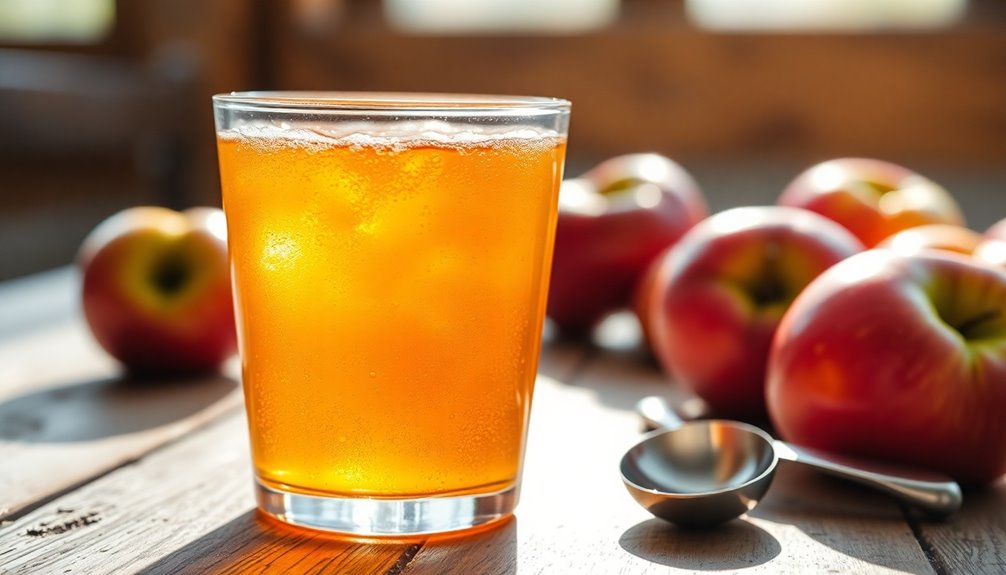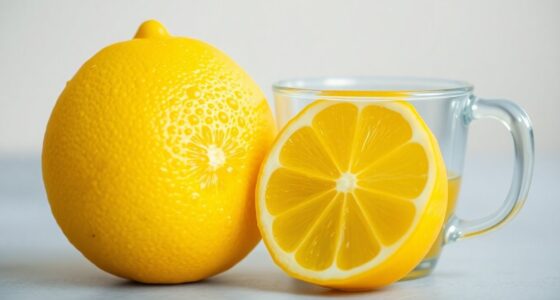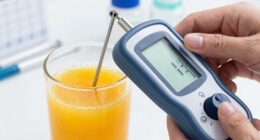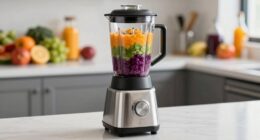A typical cup of unsweetened apple juice contains about 200 to 250 mg of potassium, which is around 4 to 5 percent of your daily recommended intake of 4,700 mg. While this may not seem like much, every little bit helps with maintaining healthy blood pressure and supporting muscle function. Keep in mind that potassium levels can vary between brands, so be sure to check the nutrition labels. There’s more to learn about potassium sources and benefits. Additionally, incorporating foods with higher potassium content, like fruits and vegetables, can greatly enhance your overall intake. When considering beverages, it’s essential to be mindful of the potassium content in apple juice compared to other fruit juices, as some may offer higher levels. By staying informed about your potassium sources, you can better support your body’s needs and promote optimal health.
Key Takeaways
- A typical cup of unsweetened apple juice contains 200 to 250 mg of potassium.
- This amount represents about 4 to 5 percent of the daily recommended intake for adults.
- Potassium content can vary significantly between different brands and processing methods.
- Apple juice can be a convenient source of potassium, but whole fruits and vegetables are preferred.
- Always check nutrition labels to compare potassium levels among different apple juice brands.
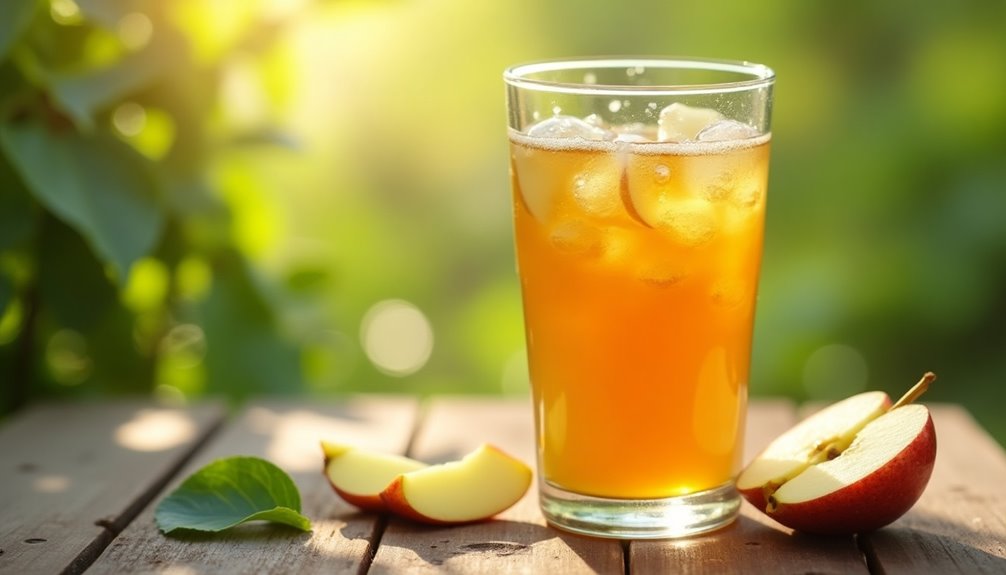
Have you ever wondered how much potassium is in apple juice? You might be surprised to learn that a typical cup of unsweetened apple juice contains between 200 to 250 mg of potassium. That's a decent amount, especially when you consider that the daily recommended intake for adults is around 4,700 mg. So, when you sip on that refreshing glass, you're getting about 4 to 5 percent of your daily potassium needs. That mightn't seem like a lot at first, but every bit counts, especially if you're looking to balance your electrolytes or maintain healthy blood pressure levels.
Now, the potassium content in apple juice can vary quite a bit. This variation largely depends on the processing methods and the specific brand you choose. Some brands might filter out some of the natural nutrients during production, while others may fortify their juices to boost the potassium levels. If you're someone who likes to read nutrition labels (and you should!), keep an
Frequently Asked Questions
Is Apple Juice High in Potassium?
You might wonder if apple juice is high in potassium. While it does contain a decent amount, it's not the highest among fruit juices.
Typically, an 8 fl oz serving offers about 200–250 mg, which is around 4 to 5 percent of your daily needs.
However, remember that potassium levels can vary by brand, so always check the nutrition labels.
For balanced nutrition, pair it with other fruits and vegetables!
What Juice Is Highest in Potassium?
When you're exploring juices for potassium, consider orange juice, whole milk, and grapefruit juice.
Orange juice stands out with about 248 mg of potassium per ½ cup, making it a top choice. Whole milk follows closely with 370 mg per cup, while grapefruit juice offers a refreshing 189 mg per ½ cup.
If you want to boost your potassium intake, these options can really help you on your health journey!
Is Peanut Butter High in Potassium?
You might be wondering if peanut butter is high in potassium. While it contains around 200 mg per 2-tablespoon serving, this only accounts for about 4% of the recommended daily intake.
So, it's not considered a high-potassium food. However, peanut butter does offer protein, healthy fats, and other nutrients that can enhance your diet.
Just remember to enjoy it in moderation and not rely solely on it for your potassium needs.
How Can I Get 4700 Mg of Potassium a Day?
To reach 4,700 mg of potassium daily, focus on a diverse diet.
Start with bananas and sweet potatoes, and add leafy greens like spinach. Incorporate legumes, such as kidney beans, and enjoy avocados for their high potassium content.
Don't forget to include various fruits and vegetables throughout your meals.
Conclusion
In conclusion, apple juice is like a refreshing stream of nutrients, offering about 250 mg of potassium per cup. This essential mineral plays a vital role in maintaining your body's balance, much like a conductor leading an orchestra. So, the next time you pour yourself a glass, remember that you're not just enjoying a tasty drink, but also giving your body a little boost. Cheers to the potassium-packed goodness that helps keep everything in harmony!
Cindy thoroughly researches juicing trends, techniques, and recipes to provide readers with practical advice and inspiration. Her writing style is accessible, engaging, and designed to make complex concepts easy to understand. Cindy’s dedication to promoting the advantages of juicing shines through her work, empowering readers to make positive changes in their lives through the simple act of juicing.

